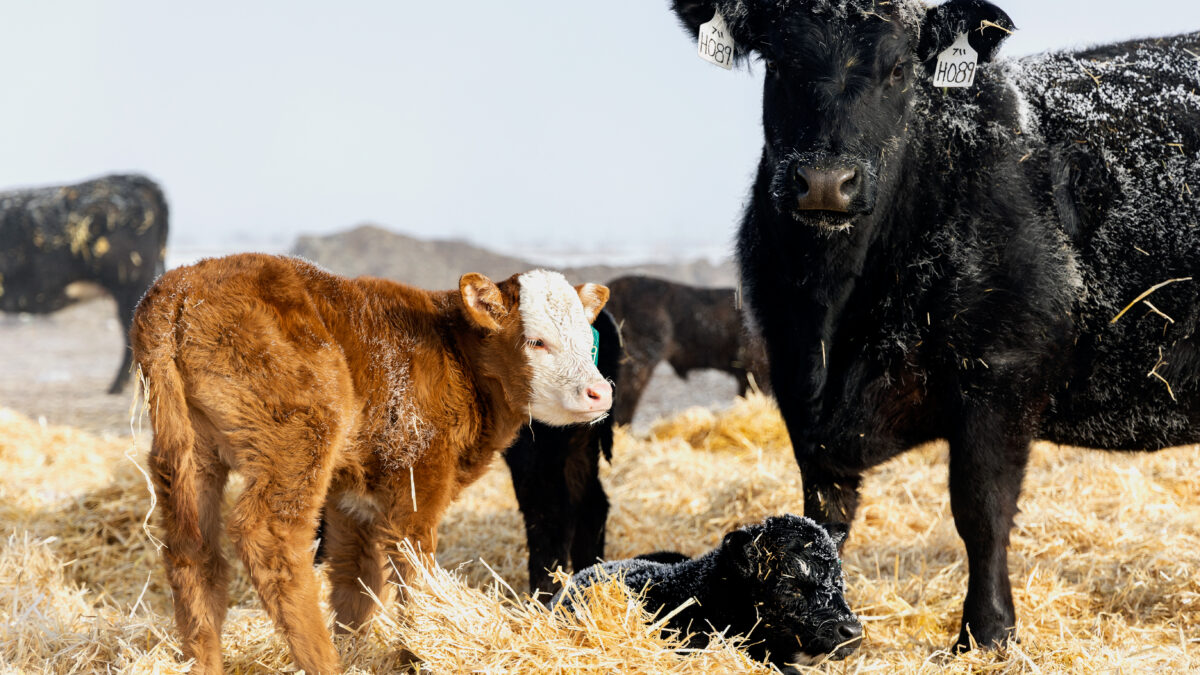The Rhythm of Calving
Jackie Mundt

photo credit: Colorado Farm Bureau, Used with Permission
Jackie Mundt
Farmers Watch and Wait for Baby Calves
Calving season started on our farm in the middle of February with the arrival of three babies. For roughly two months our beef cows and their newborn babies will be the center of all our attention.
This season has become one of my favorite parts of the farm year. Even though I grew up on a dairy farm, calves arriving in this small window was new to me as our dairy calving was staggered throughout the year.
Calving is a time of long hours, spontaneous burst of intensity and nights filled with worry. But it is also filled with stretches of quiet serenity, the wonder of new life and a rhythm of routine that fills me with peace and gratitude.
The births are unpredictable — a little bit like knowing you are going to have a house guest but not knowing when they will arrive. We are nervous the calves will show up in the middle of the night or when you are away from home, but we can’t spend all of our time watching and waiting. Day or night, the births often happen without issue and a cow with good maternal instinct will have the young one clean, feeding and walking around the pasture within 24 hours.
Occasionally things don’t go as planned and we have to step in and help things along. This is most likely to happen for those giving birth for the first time or on very cold nights. When we help by pulling a calf, warming them inside or occasionally feeding them colostrum, there is a lot of worry and hope that the calf will make it. Knowing that the natural course of calving means some won’t survive doesn’t ever make it easier to lose one.
Farmers ride through their pastures multiples times a day during calving season.
Like a doctor making rounds, farmers ride through their pastures multiples times a day during calving season. We are on the lookout for dark patches in the grass that might be a calf, cows with twitchy tails or away from the herd, which are both signs they are close to delivery. This exercise of checking the herd doubles as the practice of mindfulness, the therapeutic technique of focusing on the present to relieve stress, because all of our energy is spent paying attention to the things happening in the moment.
The views during this season are unforgettable, too. I have always thought Kansas is at its height of beauty on warm February days when the sun is shining and cows are grazing on wheat that has greened up.
Evening checks are always my favorite. The “how was your day,” conversation on the drive to the field fades away as we start the check and need to focus on the task at hand. As the days have started to get a little longer, the fading sun creates a picturesque world framed by the most beautiful colors the sky can paint. A feeling of peace and wonder settles in during these marvelous moments.
Every day the work is the same: look for new calves to tag, check on cows who are getting close to delivery, check the water and roll out a feed bale if needed. These are simple steps of a routine that never feel that way; each day is challenging and gratifying in its own ways.
The weeks of calving season are filled with hard work, lots of stress and little sleep. They also generate enough beauty and contentment to fuel my soul for the coming year.
If you don’t have calves of your own, when you next pass a field of cows grazing stop to enjoy a moment of beauty and remember the farmers who keep watch at all hours of the day and night.
Jackie Mundt, a Wisconsin native, is a Farm Bureau leader and farmer from Kansas. She is a contributor to Collegiate and Young Farmers & Ranchers programming at the local, state and national level. This column originally appeared on the Kansas Farm Bureau website and is re-published with permission.
Trending Topics
VIEW ALL